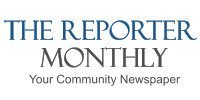No Surprise Here: The Most Recent Wave of Book Bans Includes More Black Authors Than Ever
The war on critical race theory includes a new crop of Black authored books being mislabeled as such.
On January 6, 2022, NBC news addressed the recurring and controversial conversation about books by Black authors being banned in schools all around the U.S. Ironically, this story resurfaced on the anniversary of the coup that transpired a year prior. The most obvious connection between the insurrection and banned book lists is that white supremacy is insidious, omnipresent, and unrelenting.
Almost six months ago, illustrator and renowned Black children’s author Jerry Craft received a message stating that some of his Young Adult literature books were being removed from a school library in Katy, Texas. Craft, a Newbery Medal-winning author for his 2019 graphic novel “New Kid,” told NBCBLK that he was “caught off guard” and “felt bad for the kids because I know how much they love ‘New Kid’ and ‘Class Act.’ I know what my school visits do… I felt bad if there was going to be some kids that would not be able to take advantage of that.”
In October, the Katy Independent School District was in headlines for temporarily removing two of Craft’s books that discuss how Black boys experience racism in schools, subsequently postponing his virtual visit. More than 400 parents from Katy signed a petition, which has been removed, asserting that Craft’s visit needed to be canceled. This is not the first time Katy, Texas has been in the news for attempting to suppress the public’s access to books that engage the topic of racism.
Although the Texas school district added Craft’s books back to the shelves and rescheduled his visit, this kind of suppression and antagonism is not particular to Craft’s books. There are countless Black authors whose works are banned from school libraries because they are incorrectly described as texts that teach about critical race theory. To be clear, most of the books do not teach students about critical race theory; these books are by Black people and people of color, all presumed to be suspect because of those racialized categories, not because of their books’ content.
This past fall, Republican and Texas state Rep. Matt Krause, released a list of more than 850 books that he purported “make students feel discomfort” because they engage topics of racism and sexuality. Among the list of writers that Krause urged school libraries to report was “Hood Feminism,” a 2020 nonfiction work by Mikki Kendall. Kendall’s book, “Hood Feminism” underscores issues that women of color face, stating that the bans did not impact students’ decision to share her work with others. Kendall says, “There’s nothing more attractive to a kid than a forbidden book. I am watching kids respond by saying, ‘Well, I read the book to see what they were so upset about.’” Kendall goes on to poignantly remark that the bans are a “ridiculous publicity stunt” that endeavors to “…undermine education for the kids who are not lucky enough, not risk-seeking enough, not prepared enough to seek out information on their own.”


